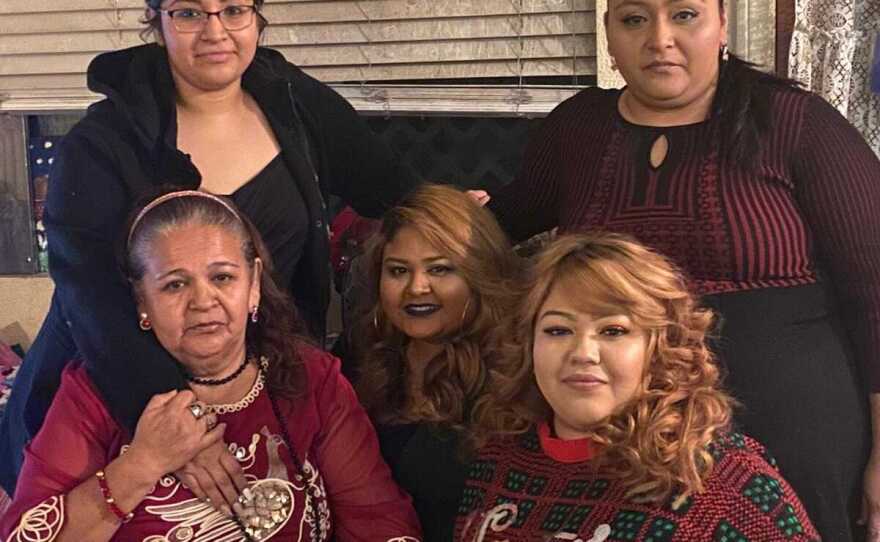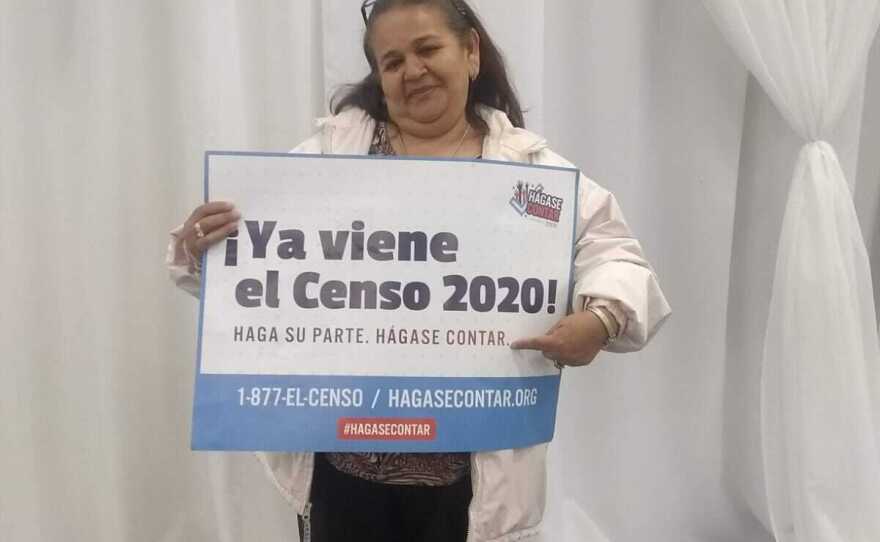Mental health can be a hard topic to talk about and for some cultures, it can go ignored. KPBS reporter Tania Thorne looks into some of the barriers preventing the Latino community from seeking mental health help.
Estela Chamu’s depression began when she left her hometown in Mexico at the age of seventeen.
A family friend told her parents he had a job for Chamu in California, babysitting two American children. But there was no job, and the man who took her from her family wanted her as his woman instead.
For fifteen years, Chamu tolerated a forced and abusive relationship.
“In that ranch I endured domestic violence. He would chase me with a rifle and slap me. My life has been really sad. I would cry, I couldn’t go anywhere, I had no activities. I was barred to the ranch,” Chamu said.
VIDEO: Talking About Mental Health In The Latino Community
Until one day she had enough and left. Alone with her kids, Chamu knew she wasn’t ok and sought out help.
“I needed help with my mental health. The mentality we have as Latinos is ‘I’m not crazy.’ And it’s not that we’re crazy. It’s that we need the support of a doctor, a specialist,” Chamu said.

But the Latino community faces language barriers, less access to health care, and cultural influences that keep them from getting help with mental health. One of the biggest barriers is the stigma of being seen as being “crazy”.
Andrea Vasquez was diagnosed with major depressive disorder when she was sixteen.
“You have these people looking at you in the face and telling you, ‘You can just pray this demon away,’” said Vasquez.
Vasquez’s depression got so bad she began self harming and checked into a behavioral health center.
“The anger was the bigger part of it; the depression, the panic attacks I had been having. And at that moment I told them this is a crisis because I don’t want to live,” said Vasquez.
She said her parents had a hard time accepting she needed mental health help.
“I think they really didn’t want to accept the fact that I wasn’t ok, and that’s a big thing in the Latin community. That it’s to believe that if there’s something wrong with your child. It was your fault.”
The discomfort over mental health within the Latino community also has to do with the lack of therapists that can understand the culture and the problems they face.
“It’s really hard to find the therapist that connects with those issues. ‘Hey, I think I have problems with my family because of my culture,’ and you’re talking to a white male therapist that has no idea what you’re talking about,” said Vasquez about her experience with several therapists.
Then there are therapists like Lizeth Ma.
Ma is a Latina and says she can relate to the cultural influences Latinos face when it comes to mental health help and often encounters them.
“Grandma believes that if we pray to God and do a rosario and if we pay our prayers to the church, God’s going to grant us a miracle and those symptoms will go away,” she said.
In her practice, Ma said she has to be culturally sensitive to the points of views of her patients, and also incorporates them in her treatment.
“Ok yes we can pray but this needs something more. We have to respect their belief system but also work with them. So what I try to do is incorporate those beliefs,” said Ma.
Ma said there is still progress to be made in mental health services and she thinks the pandemic made the need more urgent.
“Think about what that’s going to do to people in the long run. We’re going to see an increase in people experiencing mild symptoms of OCD, maybe paranoia. All these things that we haven’t even thought about or even seen, because were still in the midst of the pandemic,” Ma said.
As people rebuild their lives from the aftermath of the pandemic, Ma suggests not sleeping on mental health.
“I think we need to educate people that it doesn’t simply go away. We need to learn and teach people the way to navigate the way to seek out resources for their specific needs, and how they do it. And how can they find someone that they connect with.”
Chamu is building that bridge to resources for her community as part of Poder Popular, a North County advocacy group.
Through Poder Popular, Chamu has assisted domestic violence support groups, organized food distributions, and informs the Latino community of health resources.
“For me it’s a new life. Since I left my life with domestic violence and got involved with the groups, it’s the most marvelous thing I have found in my life. My work for the community and the help I got,” said Chamu.

Chamu said these activities have been the best medicine to get her out of depression and help her community along the way.
If you or a loved one are considering seeking mental health help, Ma said resources are available.
“There’s available resources for no matter where you are in the socio-economic status. The limitation is sometimes that people don’t know how to access those resources.”
Ma said a great place to start is by calling 211 or going to your nearest community clinic.
Talking About Mental Health In The Latino Community
Listen to this story by Tania Thorne.

